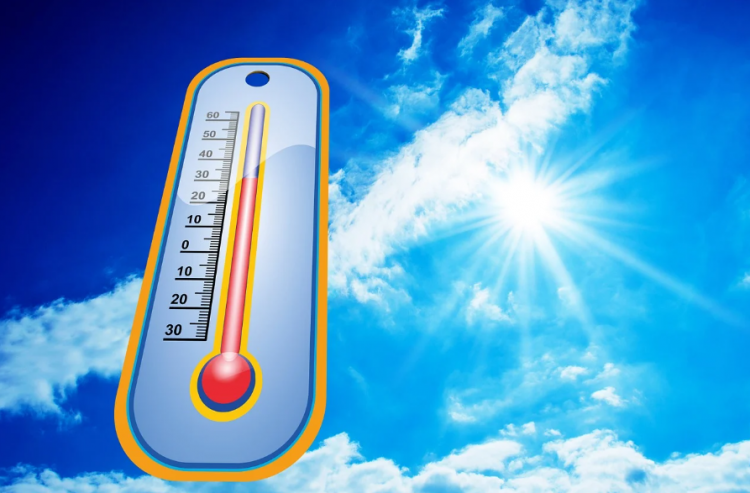The relentless heat wave scorching the United States is set to intensify this weekend, with millions of Americans across various states bracing for record-breaking temperatures. Forecasters predict sweltering conditions from the central and southern Plains to the East Coast, with humidity driving heat index values into the mid-100s in some areas.
According to the National Weather Service (NWS), temperatures are expected to reach the mid-to-upper 90s, posing significant health risks. "These temperatures remain the most anomalous and dangerous for early summer over portions of the Midwest/Ohio Valley east to the Mid-Atlantic," the NWS stated.
In Washington, D.C., officials are urging residents to take precautions against the extreme heat. Thennie Freeman, director of the city's Department of Parks and Recreation, emphasized the importance of staying hydrated and avoiding outdoor activities during peak heat hours. "Heat exhaustion is a real thing. We want our residents to be safe from extreme heat," Freeman told CBS News.
Disruptions and Power Outages
The heat wave has already caused significant disruptions. In Michigan, utility crews are working around the clock to restore power to thousands of homes and businesses in suburban Detroit after severe storms compounded the heat crisis. Brian Calka, DTE Energy's vice president of distribution operations, reported that about 12,000 customers remained without power as of Friday afternoon, down from 75,000 at the peak of the outages.
Utility workers are facing grueling conditions, with crews from multiple states collaborating to restore power. "They are working in very, very tough conditions," Calka noted, explaining that workers are dealing with the heat while wearing heavy protective gear.
Heat-Related Deaths and Health Risks
In Idaho, two people in their 60s have died from heat-related causes, marking the state's first heat-related deaths of the year. Health officials have not released further details about the victims. The extreme temperatures have been exacerbated by climate change, with scientists from World Weather Attribution attributing the current heat wave's intensity to human-caused global warming.
Flash Flooding and Severe Weather
The excessive heat is not the only weather-related concern. Heavy showers and thunderstorms have sparked flash flooding in parts of New England and the Great Lakes. In northern Minnesota, floodwaters have inundated several tourist towns, leading to road closures and significant damage. In South Dakota, campers had to be rescued by boat after a race event was canceled due to flooding.
Iowa has also faced severe flooding, prompting Governor Kim Reynolds to deploy helicopters for evacuations. In Rock Valley, residents were evacuated from their homes early Saturday morning as floodwaters rose rapidly. "We've got National Guard helicopters coming in where people are on their roofs," Mayor Kevin Van Otterloo said.
Nationwide Impact and Precautions
The heat wave is impacting states across the country. In the western and central U.S., temperatures are expected to soar into the mid-90s to low 100s. In the Pacific Northwest, Great Basin, and California, the heat will persist, while "monsoon-like conditions" in New Mexico and Nevada bring the threat of heavy downpours and flash flooding.
Officials are setting up cooling centers and urging residents to take precautions. New York City has activated emergency measures, with Governor Kathy Hochul mobilizing National Guard members to assist. "High heat is a silent killer, posing a disproportionate threat to our most vulnerable residents," city officials warned, encouraging the use of air conditioning and public cooling spaces.
The Centers for Disease Control and Prevention (CDC) highlight the deadly nature of extreme heat, which claims over 1,000 lives annually. The National Weather Service (NWS) also reminds the public of the dangers of leaving children in hot cars, a tragedy that has claimed over 900 young lives since 1998.




